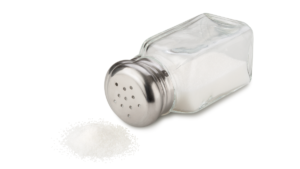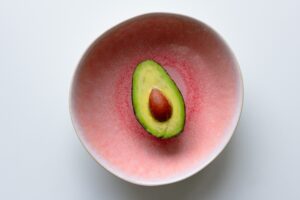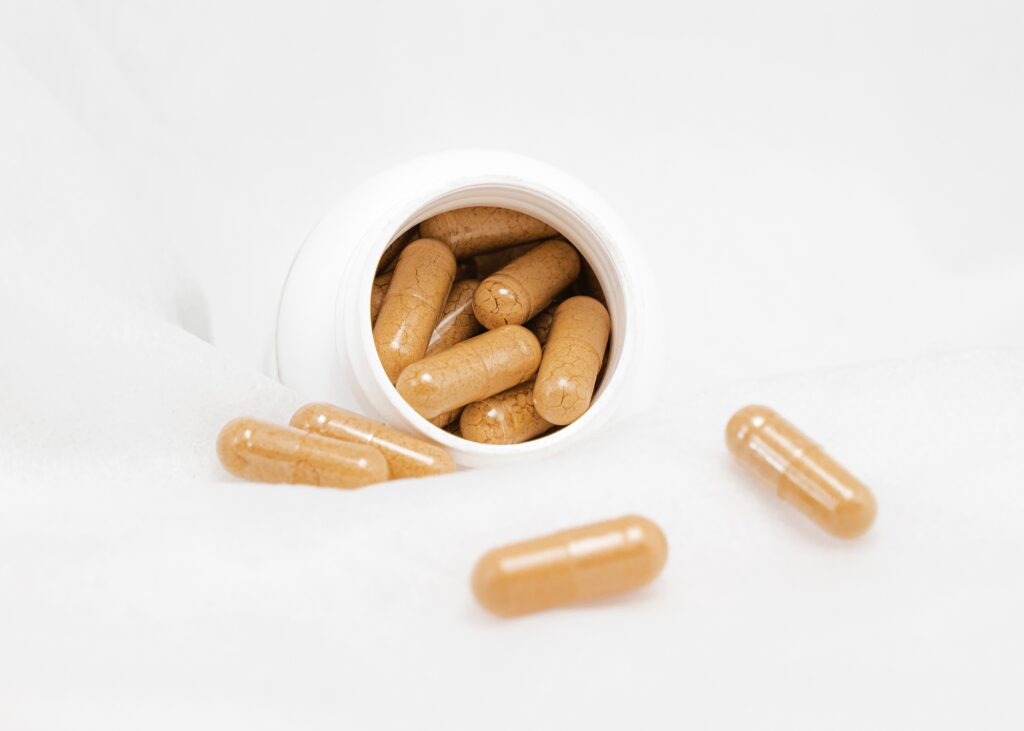Nutrition for Men’s Heart: A Father’s Day Gift of Health!
With Father’s Day just around the corner, it’s the perfect time to celebrate the men who fill our lives with love, compassion, and support. While gifts like ties, gadgets, or tools are always appreciated, this year, why not consider giving the gift of health by focusing on nutrition for men’s heart health this Father’s Day?
Heart disease remains a leading cause of mortality among men worldwide. However, the good news is that many heart conditions are preventable through simple lifestyle changes, with nutrition playing a central role. So, in honor of Father’s Day and the men we cherish, lets understand the role of nutrition for men’s heart health:
Men’s Heart Health Tip # 1: Load Up on Fruits and Vegetables:

Loading up on fruits and vegetables is a delicious and rewarding way to support men’s heart health. Here are some practical tips to help Dad incorporate more of these nutritious foods into his diet:
- Start the Day with a Fruit-Packed Breakfast: Kickstart the morning with a nutrient-rich breakfast by adding fruits like berries, bananas, or sliced apples to oatmeal, yogurt, or whole grain cereal. A smoothie blended with spinach, kale, or avocado along with fruits can also be a refreshing and nutritious option.
- Snack Smarter: Swap out processed snacks for fresh fruits and vegetables. Keep a bowl of washed fruit on the counter or sliced vegetables like carrots, cucumbers, and bell peppers in the fridge for easy, grab-and-go snacks. Pair them with hummus, nut butter, or yogurt for added flavor and satisfaction.
- Bulk Up Meals with Veggies: Incorporate vegetables into every meal by adding them to omelets, salads, soups, stir-fries, and pasta dishes. Load up sandwiches and wraps with lettuce, tomatoes, cucumbers, and other favorite veggies for added crunch and nutrition.
- Get Creative with Cooking: Experiment with different cooking methods to enhance the flavor and appeal of fruits and vegetables. Roasting vegetables brings out their natural sweetness, while grilling adds a smoky flavor. Try marinating vegetables in herbs and spices or adding fruit to savory dishes for a unique twist.
- Blend Them In: Sneak extra servings of fruits and vegetables into meals by blending them into sauces, soups, and smoothies. Spinach or kale can easily be blended into pasta sauce or added to fruit smoothies without altering the taste significantly, providing an extra nutritional boost.
- Make it a Family Affair: Get the whole family involved in meal planning and preparation. Take a trip to the farmer’s market or grocery store together to pick out a variety of fresh fruits and vegetables. Encourage everyone to try new foods and recipes, making healthy eating a fun and shared experience.
- Plan Ahead: Set Dad up for success by planning meals and snacks in advance. Create a weekly meal plan that includes plenty of fruits and vegetables, and prep ingredients ahead of time to streamline cooking during busy weekdays. By incorporating these tips into his daily routine, Dad can easily load up on fruits and vegetables and enjoy the numerous health benefits they provide. With a little creativity and planning, eating a diet rich in plant-based foods can be both enjoyable and fulfilling, supporting heart health for years to come.
2. Limiting Saturated Fats & Trans Fats:
- Choose Lean Protein Sources: Opt for lean cuts of meat like skinless poultry, fish, and lean cuts of beef or pork. Trim visible fat from meat and remove skin from poultry to reduce saturated fat content.
- Switch to Healthier Cooking Methods: Instead of frying foods in butter or lard, try healthier cooking methods like grilling, baking, broiling, steaming, or sautéing with a small amount of heart-healthy oils like olive or canola oil.
- Read Food Labels: Get into the habit of reading food labels when shopping. Look for products labeled “low in saturated fat” or “trans fat-free.” Pay attention to the nutrition facts panel and ingredient list to identify sources of saturated and trans fats.
- Choose Healthy Fats: Replace foods high in saturated and trans fats with healthier fat options. Choose sources of unsaturated fats like olive oil, avocados, nuts, and seeds. Incorporate fatty fish like salmon, mackerel, and trout, which are rich in omega-3 fatty acids, into your diet regularly.
- Limit Processed Foods: Many processed foods like packaged snacks, baked goods, fried foods, and fast food contain high levels of saturated and trans fats. Limit consumption of these foods and opt for homemade or minimally processed alternatives whenever possible.
- Be Mindful of Dairy Choices: Choose low-fat or fat-free dairy products like skim milk, low-fat yogurt, and reduced-fat cheese instead of full-fat varieties. These options still provide essential nutrients like calcium and protein but with lower saturated fat content.
- Watch Out for Hidden Fats: Be mindful of hidden sources of saturated and trans fats in foods. These include coconut oil, palm oil, and partially hydrogenated oils listed in ingredient lists. Limit consumption of foods containing these ingredients.
- Cook from Scratch: Cooking meals from scratch allows you to have better control over the ingredients you use. Choose whole, unprocessed foods and prepare meals at home using healthier cooking methods and ingredients.
- Practice Portion Control: Even healthy fats should be consumed in moderation. Be mindful of portion sizes when incorporating fats into meals and snacks.
By adopting these strategies and making small changes to his eating habits, Dad can significantly reduce his intake of saturated and trans fats, thereby lowering his risk of heart disease and improving his overall health and well-being.
3. Men’s Heart Health Tip # 3: Watch Sodium Intake:
 Watching sodium intake is essential nutrition hack for men’s heart health, as excessive sodium consumption can contribute to high blood pressure and increase the risk of heart disease. Here are some practical tips to help Dad monitor and reduce his sodium intake:
Watching sodium intake is essential nutrition hack for men’s heart health, as excessive sodium consumption can contribute to high blood pressure and increase the risk of heart disease. Here are some practical tips to help Dad monitor and reduce his sodium intake:
- Read Food Labels: Become familiar with reading food labels to identify the sodium content of packaged foods. Look for products labeled “low sodium,” “reduced sodium,” or “no added salt.” Pay attention to the serving size and the amount of sodium per serving.
- Choose Fresh Foods: Whole, unprocessed foods are naturally lower in sodium compared to processed and packaged foods. Encourage Dad to focus on incorporating fresh fruits and vegetables, lean meats, poultry, fish, beans, legumes, whole grains, and nuts into his diet.
- Limit Processed and Packaged Foods: Processed and packaged foods such as canned soups, sauces, condiments, deli meats, frozen meals, and snacks often contain high levels of sodium. Encourage Dad to limit his intake of these foods and opt for homemade or minimally processed alternatives whenever possible.
- Use Herbs and Spices: Instead of relying on salt to flavor meals, experiment with herbs, spices, and citrus juices to add flavor to dishes. Herbs like basil, cilantro, parsley, and spices like garlic powder, onion powder, and cumin can enhance the taste of foods without adding sodium.
- Be Mindful of Condiments and Sauces: Condiments like ketchup, soy sauce, barbecue sauce, and salad dressings can be sources of hidden sodium. Choose low-sodium or sodium-free versions of these condiments, or make homemade alternatives using fresh ingredients.
- Rinse Canned Foods: If using canned beans, vegetables, or tuna, rinse them thoroughly under cold water before consuming to remove excess sodium from the canning liquid.
- Limit Salt During Cooking: When cooking at home, use salt sparingly or try omitting it altogether. Instead, season dishes with herbs, spices, and other flavor-enhancing ingredients.
- Be Selective When Dining Out: When dining out, ask for sauces, dressings, and gravies on the side, and choose dishes that are prepared with minimal added salt. Opt for grilled, steamed, or broiled options instead of fried or heavily seasoned dishes.
- Stay Hydrated: Drinking plenty of water can help flush excess sodium from the body and maintain a healthy balance of fluids.
By implementing these strategies and making conscious choices to reduce sodium intake, Dad can help protect his heart health and lower his risk of developing hypertension and other cardiovascular conditions. Encourage him to take small steps towards gradually reducing his sodium intake, and celebrate his progress along the way.
This Father’s Day, let’s show our love and appreciation for the men in our lives by giving them the gift of health and focusing on nutrition for men’s heart health. Consider putting together a nutritious gift basket filled with heart-healthy foods, cooking supplies, and maybe even a cookbook featuring delicious and nutritious recipes. Not only will you be showing Dad how much you care, but you’ll also be helping him take proactive steps towards a healthier, happier life.
Remember, small changes can make a big difference when it comes to heart health. By incorporating these nutritional tips into his daily routine, Dad can reduce his risk of heart disease and enjoy many more Father’s Days to come. Here’s to the dads – may they be healthy, happy, and loved today and every day!
If you want more guidance on nutrition for men’s heart health and want to work upon individualized diet plan tailored to your needs, or simply give a gift of healthy heart to your father this Father’s Day, email us to set up an appointment!
Jalpa is a registered dietitian and nutritionist with a Master’s degree in Health & Nutrition from Brooklyn College, CUNY in New York. One of her many expertise also includes pre-natal, post-natal and lactation nutrition.
Related Articles:






 Tip 1. Shift your mindset from Diet to Lifestyle
Tip 1. Shift your mindset from Diet to Lifestyle





 Deciphering Food Labels: What to Look For
Deciphering Food Labels: What to Look For

 So, make a list of a few protein sources you like, a few carb sources, and a few fat sources. Use these to piece meals together. You can even bulk prep, and save time as well. For example, prepare a large batch of shredded chicken and ground turkey. Don’t season it until you’re ready to eat – that way, you can change the seasonings or sauce for each meal and not have to eat the exact same thing every day. Next, prep a large batch of rice or sweet potatoes, and have some tortillas on hand. For your fat sources, you could use olive oil and avocados. Now that all of these macronutrients are prepped, you can throw dinner or lunch together in a matter of minutes. And you can mix and match so that you’re not getting bored with what you’re eating. One day can be ground turkey tacos with avocado, one day can be shredded chicken tacos, and one day can be ground turkey rice bowls with any veggies that you like. If you stick to bulk prepping the three main macronutrients, you can eat very healthily on a budget.
So, make a list of a few protein sources you like, a few carb sources, and a few fat sources. Use these to piece meals together. You can even bulk prep, and save time as well. For example, prepare a large batch of shredded chicken and ground turkey. Don’t season it until you’re ready to eat – that way, you can change the seasonings or sauce for each meal and not have to eat the exact same thing every day. Next, prep a large batch of rice or sweet potatoes, and have some tortillas on hand. For your fat sources, you could use olive oil and avocados. Now that all of these macronutrients are prepped, you can throw dinner or lunch together in a matter of minutes. And you can mix and match so that you’re not getting bored with what you’re eating. One day can be ground turkey tacos with avocado, one day can be shredded chicken tacos, and one day can be ground turkey rice bowls with any veggies that you like. If you stick to bulk prepping the three main macronutrients, you can eat very healthily on a budget.  To get the best bang for your buck, you need to
To get the best bang for your buck, you need to 

 Protein transports nutrients throughout the body, regulates fluid balance, and carries enzymes that are essential for bodily functions such as digestion and blood clotting. Important, right?! A huge role protein has is acting as a messenger for hormone function. Protein amino acids tell the body when to uptake sugar into the cell (insulin), and when to build more tissue, including bone (human growth hormone).
Protein transports nutrients throughout the body, regulates fluid balance, and carries enzymes that are essential for bodily functions such as digestion and blood clotting. Important, right?! A huge role protein has is acting as a messenger for hormone function. Protein amino acids tell the body when to uptake sugar into the cell (insulin), and when to build more tissue, including bone (human growth hormone).  Carbohydrates often get a bad rap for making people gain weight. But that is only true if they are overconsumed. If you are an athlete or have a very active job such as a nurse or construction worker, carbs will fuel the energy you need to perform well. Focus on high fiber, unprocessed carbs for the best results.
Carbohydrates often get a bad rap for making people gain weight. But that is only true if they are overconsumed. If you are an athlete or have a very active job such as a nurse or construction worker, carbs will fuel the energy you need to perform well. Focus on high fiber, unprocessed carbs for the best results. 


 Essential Nutrient: Omega-3s
Essential Nutrient: Omega-3s



